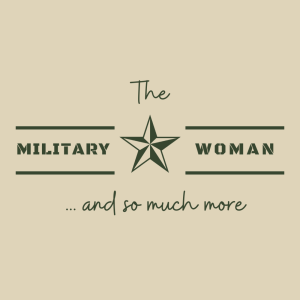
2K
Downloads
19
Episodes
We are stronger together and sometimes it's nice to be reminded we aren't alone. We are for those women who are not only serving in the military but who may be looking for a supportive community to achieve professional and personal growth. Our host, Sharika Labrie, currently serves in the military and encourages mentorship and sharing life experiences in order to work smarter and not harder when it comes to being the best mother, leader, wife, nurse, and entrepreneur she can be. Join us weekly to be inspired, educated, or motivated by stories provided by the host or experienced guest. Stop by to listen in on challenges and success stories on separation during deployments, investing in yourself, relocating family every few years, retiring, physical or emotional trauma, parenting, dual military, finding your balance and so much more that comes with the highs and lows of being a military woman.
Episodes

Wednesday Mar 31, 2021
Surviving Workplace Violence
Wednesday Mar 31, 2021
Wednesday Mar 31, 2021
“Burns are a lifelong battle,” explains Katie Blanchard, former U.S. Army Nurse Supervisor. In 2016, Katie suffered a brutal attack by a civilian employee, who threw gasoline and matches on her and lit her on fire. Katie sustained burns to 18% of her upper body and has been forced to undergo continued surgeries to combat the scars. And the worst part? Her attacker was tried in a federal court and received a maximum sentence of only 20 years in prison. So while Katie is forced to battle her burns for the rest of her life, the man who caused her injuries can re-enter his life relatively unscathed after only 20 years.
Despite the attack, Katie never allowed herself to become defeated. Instead, she has committed herself to improving the system that failed her. She has earned her Masters in Nurse Education and is now a doctoral candidate at the University of Washington pursuing a PhD in Nursing Science. She has also started her own company, WPV Solutions, which aims to prevent workplace violence before it occurs.
When asked what lessons listeners should take away from her experience, Katie explains that we must change how we look at violence in the workplace. Katie’s superiors largely ignored her complaints and concerns despite her repeated requests for support and protection prior to the assault. Katie explains that the military disciplinary system lacks continuity and that escalations are often swept under the rug rather than being seriously addressed on a larger scale. While Katie has gained little traction within the Army when it comes to a broader acknowledgment of workplace violence, she hopes to assist other organizations develop stronger safety and support foundations, so their employees feel safe in their work environments.
Tune into this week’s episode of the Military Woman to learn more about Katie’s experiences and the admirable work she is doing to combat workplace violence. You won’t want to miss this inspiring story about overcoming past trauma in pursuit of a greater good.
Quotes
- “You believe in an organization and those values that an organization has: duty, selfless service, loyalty. You believe in these things, and you believe that you’re doing a greater good, that you’re there to do work that is important. When a colonel looks at you and tells you to look the other way and to protect yourself and not to do what you feel is the right thing and the right thing for your patients...it gives you this feeling of hopelessness and a feeling of why am I here.” (14:36-15:09)
- “This kind of dynamic happens a lot in workplace violence where perpetrators will try to flip the script and make it your problem, not theirs.” (27:09-27:19)
- “I wanted people to know that I had said something, that I had known that this was going to happen, and there was no action.” (32:31-32:40)
- “Burns are a lifelong battle….My attacker got 20 years in federal prison, and that was the maximum that he could have gotten….It’s a life sentence for me, but it’s not for him.” (35:51-36:52)
- “There needs to be a reporting system in place that we can ask for resources; that we can get a threat assessment team going; that if our chain of command isn’t listening, there’s some mechanism where we can still get to people to help us stay safe in the workplace.” (38:38-38:56)
- “What the literature tells us is that a lot of times workplace violence is not active shooter. It is not that kind of extreme violence. A lot of times this risk of violence is very much a spectrum, and it’s both verbal and physical….We can very much prevent workplace violence from happening if we have the right tools to do it.” (43:12-43:35)
Links
Podcast production and show notes provided by FIRESIDE Marketing

No comments yet. Be the first to say something!